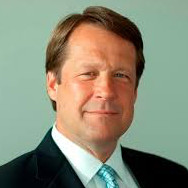How the Investor Base for De-SPACs Is Evolving
In this episode of The SPAC Podcast, James shares how the investor base for de-SPACs has shifted and why sponsors must focus on attracting long-term, fundamental investors.
James explains that while redemption risk is always present, the “unicorn” is the fundamental investor who buys in between announcement and closing. He notes that some of the most successful deals he’s worked on, those with minimal or no redemptions, were anchored by strong institutions like Putnam and Par Capital that believed in the long-term story.
The lesson? Sponsors need to think less about avoiding redemptions and more about targeting fundamental investors who want to own the business beyond the merger.
Connect with the Guest:
James – SPAC & Capital Markets Expert
LinkedIn: https://www.linkedin.com/in/james-graf-745191/
View all of their episodes here:
https://www.thespacpodcast.com/guests/james
Connect with the Hosts & The SPAC Podcast:
Michael Blankenship LinkedIn:
https://www.linkedin.com/in/mikeblankenship/
Joshua Wilson LinkedIn:
https://www.linkedin.com/in/joshuabrucewilson/
YouTube Channel:
https://www.youtube.com/@Thespacpodcast
Contact The SPAC Podcast:
https://www.thespacpodcast.com/contact/
#SPACs #CapitalMarkets #SPACPodcast #DeSPAC #InvestorBase #PIPE #LongTermInvestors
Disclaimers:
The views, opinions, and statements expressed by the guest are solely their own and do not necessarily reflect the views of The SPAC Podcast, its hosts, or affiliated organizations. This content is for informational purposes only and should not be construed as investment, legal, tax, or accounting advice.
Michael J. Blankenship is a licensed attorney and is a partner at Winston & Strawn LLP. Joshua Wilson is a licensed Florida real estate broker and holds FINRA Series 79 and Series 63 licensure. The content of this podcast is intended for informational and educational purposes only and should not be interpreted as legal, financial, or compliance advice. The views and opinions expressed by the hosts and guests are their own and do not necessarily reflect the official policies or positions of any regulatory agency, law firm, employer, or organization.
Listeners are encouraged to consult their own legal counsel, compliance professionals, or financial advisors to ensure adherence to applicable laws and regulations, including those enforced by the SEC, FINRA, and other regulatory bodies. This podcast does not constitute a solicitation, offer, or recommendation of any financial products, securities transactions, or legal services.
Let’s Connect on LinkedIn:
👉 Michael J. Blankenship - https://www.linkedin.com/in/mikeblankenship/
👉 ...
Mike Blankenship:
Has the investor base for De-SPACs changed, and how should sponsors think about targeting them?
James:
The unicorn is the fundamental investor who will buy stock in the market between announcement and closing. Over the years, we’ve had four deals with minimal redemptions, but in each case, there was almost 100% migration, existing SPAC holders sold to new investors at $11 or $12.
Nobody is going to buy stock above cash value and then redeem at $10. The real key is finding transactions where fundamental investors want to own the story.
Our first SPAC had a $70 million PIPE with Putnam and Par Capital in the airline services sector, true long-term investors who believed in the company. You also saw this with Lionsgate, where major fundamental investors came in.
So while the overall dynamics haven’t changed, success depends on attracting big-name, long-term investors who see value in the business post-merger.

CEO
James Graf is CEO of Graf Global Corp., his eighth SPAC as CEO, CFO and/or active director since 2011. He also serves as Interim CFO of NKGen Biotech, his last SPAC target. Previous closed transactions include Global Eagle, Videocon d2h, Williams Scotsman, Target Hospitality, Velodyne Lidar, Crown LNG and NKGen.Prior to SPAC life, Jim was an investment banker for two decades, including roles as President of Deutsche Bank’s investment bank in Hong Kong and managing director at Merrill Lynch. He later founded enterprise software company Praedea Solutions and served as a financial consultant to MGM Studios.












